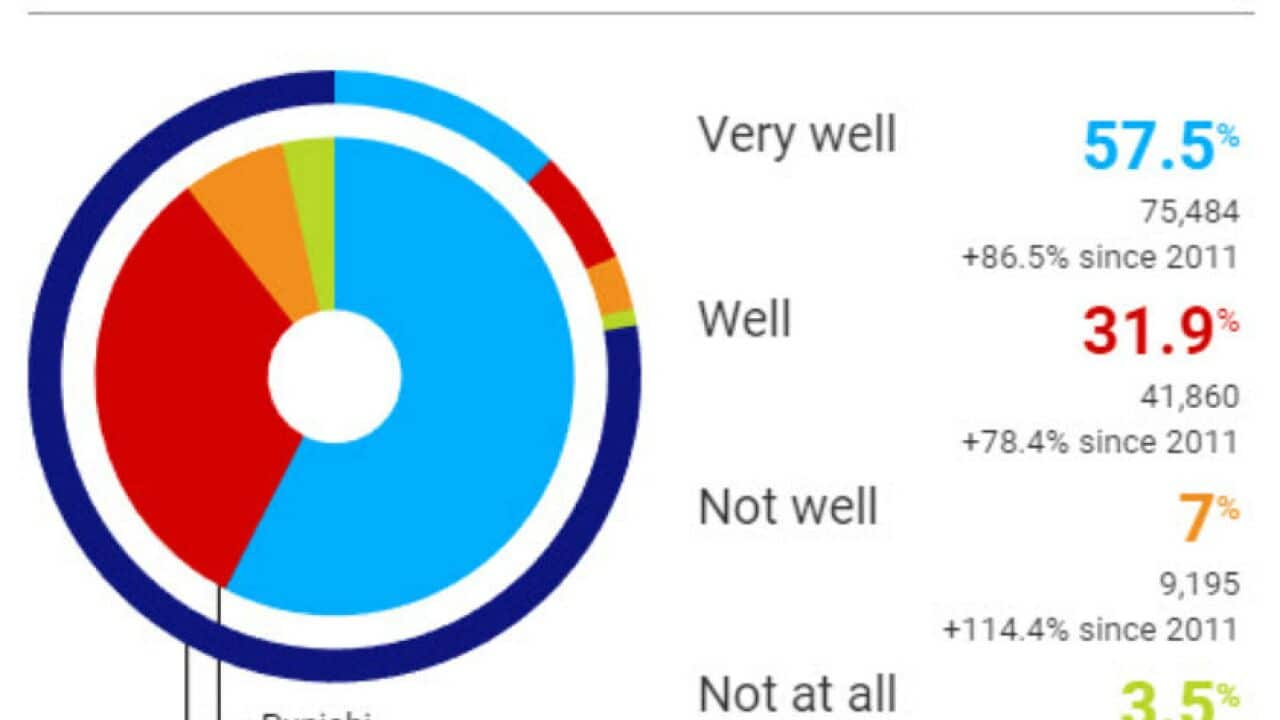It is estimated that the Partition of India on August 14th and 15th cost a million lives in the violence that ensued, and nearly 14 million people became refugees overnight.
The creation of India and Pakistan ignited one of the largest and most devastating mass migrations in human history.
Mass violence broke out as the lines were drawn based on religious divisions with Muslims moving to Pakistan, and Hindus & Sikhs to India.
that nearly 14 million people left behind their ancestral homes, while half a million lost their lives.
The 1947 Partition Archive is an organization that is leading a global effort to tell the untold stories from survivors of India and Pakistan’s Partition.
The archive has over 4,300 oral history interviews and over 30,000 digital documents and photographs that were collected from 12 countries in 22 languages in the last nine years.
Guneeta Singh Bhalla, Founder and Executive Director of the 1947 Partition Archive, told SBS Punjabi that their organisation in partnership with a consortium of universities is committed to share the stories of the Partition.
After visiting the memorial in Hiroshima and several other holocaust museums, Guneeta wondered why there wasn't a memorial dedicated to the casualties and victims of the Partition of India.
That's where the idea of the 1947 Partition Archives came to Guneeta and she started documenting the harrowing tales as recollected by ageing survivors.
“The younger generation doesn’t know much about Partition, which was a critical period in India-Pakistan histories,” said Mrs Bhalla.
“Before we started this work, there were no comprehensive resources of witness accounts of Partition. Some books and movies are available but what about real life stories?”
"Basically, it started with one thought that became a mission later.”
“The first thought of preserving this part of history came in 2008 when I visited a museum in Hiroshima, Japan. I was so astonished to see the way it displayed the tales of tragedy that surfaced after the dropping of atomic bombs on Hiroshima and Nagasaki at the end of World War II.”
"1947 Partition was one of the biggest tragedies mankind has ever seen! Why can’t we set a museum for this histroical chapter? It can ideally be placed somewhere near India-Pakistan and India-Bangladesh borders."
“I wanted to ensure that the last remaining memories of this historic event are preserved."
“The first story that I captured was in Faridkot, Punjab. I recorded a witness account of an old couple who moved to Punjab from Sindh during Partition.”
“Our end goal is to record at least 10,000 oral history interviews from surviving witnesses. We receive requests daily from artistes, researchers, media persons, students and others, wanting access to the oral histories”.
The 1947 Partition Archives have already managed to document thousands of stories of survivors around the world, with the help of accredited 'citizen historians'.
The 1947 Partition Archive in partnership with a consortium of universities has now plans to make the complete oral history collection available and accessible to the public.
Physical exhibits containing the complete works of The 1947 Partition Archive will be coming soon to it partner Universities including, Lahore University of Management Sciences, Ashoka Unviersity, University of Delhi, Guru Nanak Dev University and Habib University.
Here we share excerpts of some of the real stories recorded by the the 1947 Partition Archive.
A portion of The 1947 Partition Archive's oral history collection is now accessible by online streaming from .
The archive plans to release the witness accounts at the rate of one a day.






